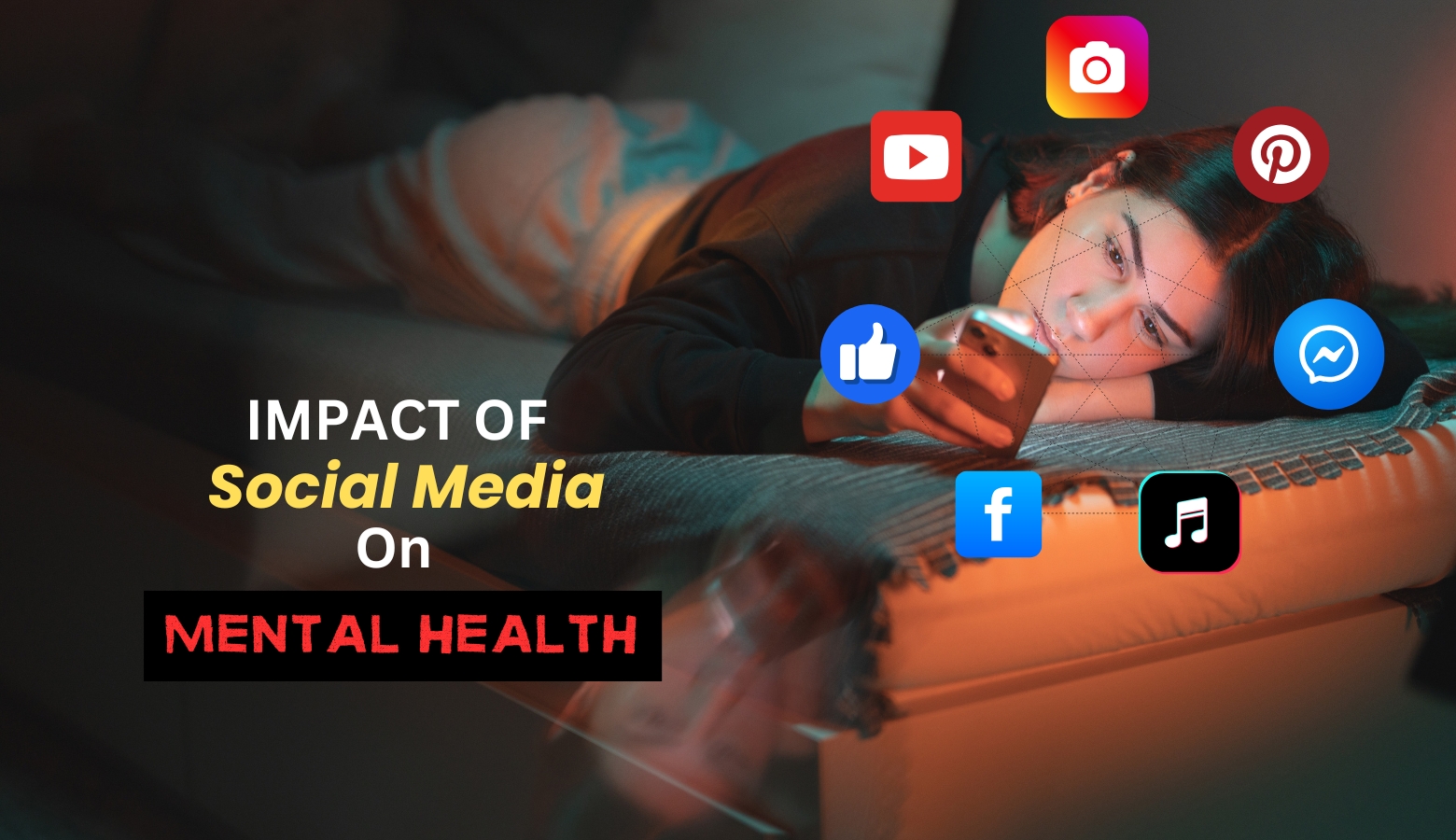- Mon-Sat 11:00 AM - 6:00 PM
- +91 91510 06808

February 05, 2025
A college student scrolled through their phone late at night, unable to put it down despite feeling exhausted. Their feed was filled with perfectly curated travel photos, career milestones, and seemingly flawless lives of influencers. They sighed, comparing their reality to the digital perfection they consumed daily. What started as a harmless way to stay connected had turned into an overwhelming source of anxiety and self-doubt. This story is not unique—millions face similar struggles in an era where social media dictates self-worth.
In 2025, social media is more pervasive than ever, shaping how we communicate, work, and perceive ourselves. With the rise of artificial intelligence-driven algorithms, immersive virtual experiences, and the ever-increasing pressure of online validation, social media has become both a lifeline and a labyrinth for mental well-being. While it connects us to the world in unprecedented ways, it also fuels anxiety, depression, and self-esteem issues. As a psychologist deeply invested in mental health, Dr. Amita Devnani explores the profound effects of social media on our psychological well-being and provides strategies to navigate this complex digital landscape.
The Evolution of Social Media: A New Reality
Over the last decade, social media has transformed from a simple networking tool to an all-encompassing digital ecosystem. Platforms now leverage artificial intelligence to curate content, analyze behavior, and even predict emotions. The introduction of the metaverse and virtual reality (VR) has made social media more immersive, blurring the lines between the digital and real world. With this evolution, the mental health challenges associated with social media have also intensified, requiring a deeper understanding of its psychological impact.
The Psychological Toll of Social Media
Increased Anxiety and Depression
Social media fosters a culture of comparison, where people measure their worth based on likes, shares, and followers. Studies have shown a direct correlation between excessive social media use and increased anxiety and depression, particularly among adolescents and young adults. The constant exposure to idealized lifestyles creates unrealistic expectations, leading to feelings of inadequacy and loneliness.
Digital Addiction and Dopamine Loops
Social media platforms are designed to be addictive. Each like, comment, or notification triggers a release of dopamine, the brain’s reward chemical. Over time, this creates a compulsive cycle, where users feel the need to check their phones repeatedly. Digital addiction can lead to decreased attention spans, disrupted sleep patterns, and an inability to engage meaningfully in real-life interactions.
Sleep Disruptions and Fatigue
The blue light emitted by screens interferes with melatonin production, disrupting sleep cycles. Doomscrolling—endlessly consuming negative news—further exacerbates stress levels, making it harder to relax before bedtime. Poor sleep quality contributes to fatigue, irritability, and cognitive decline, all of which negatively impact mental health.
Cyberbullying and Online Harassment
While social media provides a platform for expression, it also exposes users to cyberbullying and online harassment. In 2025, AI-driven deepfake technology and misinformation have made digital abuse even more sophisticated. Victims of online harassment often experience severe psychological distress, including anxiety, depression, and post-traumatic stress disorder (PTSD).
Body Image and Self-Esteem Issues
The rise of augmented reality (AR) filters and AI-generated beauty standards has intensified body image concerns. Social media perpetuates unrealistic beauty ideals, making individuals—especially teenagers—more susceptible to low self-esteem, eating disorders, and body dysmorphia. The constant pursuit of perfection creates a toxic environment where self-worth is dictated by external validation.
Positive Aspects: The Other Side of the Coin
Despite its challenges, social media also offers several mental health benefits when used mindfully:
Support Communities and Mental Health Awareness: Online support groups, mental health influencers, and therapy apps have made psychological resources more accessible.
Educational Content: Social media spreads awareness about mental health, providing coping strategies and self-care tips.
Connectivity and Belongingness: Platforms help people stay connected, especially during difficult times, reducing feelings of isolation.
How to Use Social Media for Better Mental Health
Set Boundaries
Establish screen-time limits and take regular digital detoxes. Apps that track usage can help manage screen time effectively.
Curate Your Feed
Follow accounts that promote positivity, mental health awareness, and self-growth. Unfollow or mute content that triggers negative emotions.
Practice Mindful Consumption
Be aware of how social media affects your mood. Engage actively rather than passively scrolling, and take breaks when necessary.
Engage in Real-Life Activities
Balance online and offline interactions. Prioritize real-life relationships, hobbies, and physical activities.
Seek Professional Help When Needed
If social media negatively impacts your mental health, consider talking to a therapist. Professional guidance can help in developing healthier digital habits.
A Conscious Approach to Social Media
In 2025, social media continues to be a powerful force, influencing mental health in both positive and negative ways. The key lies in conscious and balanced usage. By understanding its psychological impact and implementing mindful practices, we can harness the benefits of social media while safeguarding our mental well-being. As we navigate this ever-evolving digital age, let’s prioritize mental health, self-awareness, and meaningful connections—both online and offline.
Feel free to contact us at: +91 91510 06808